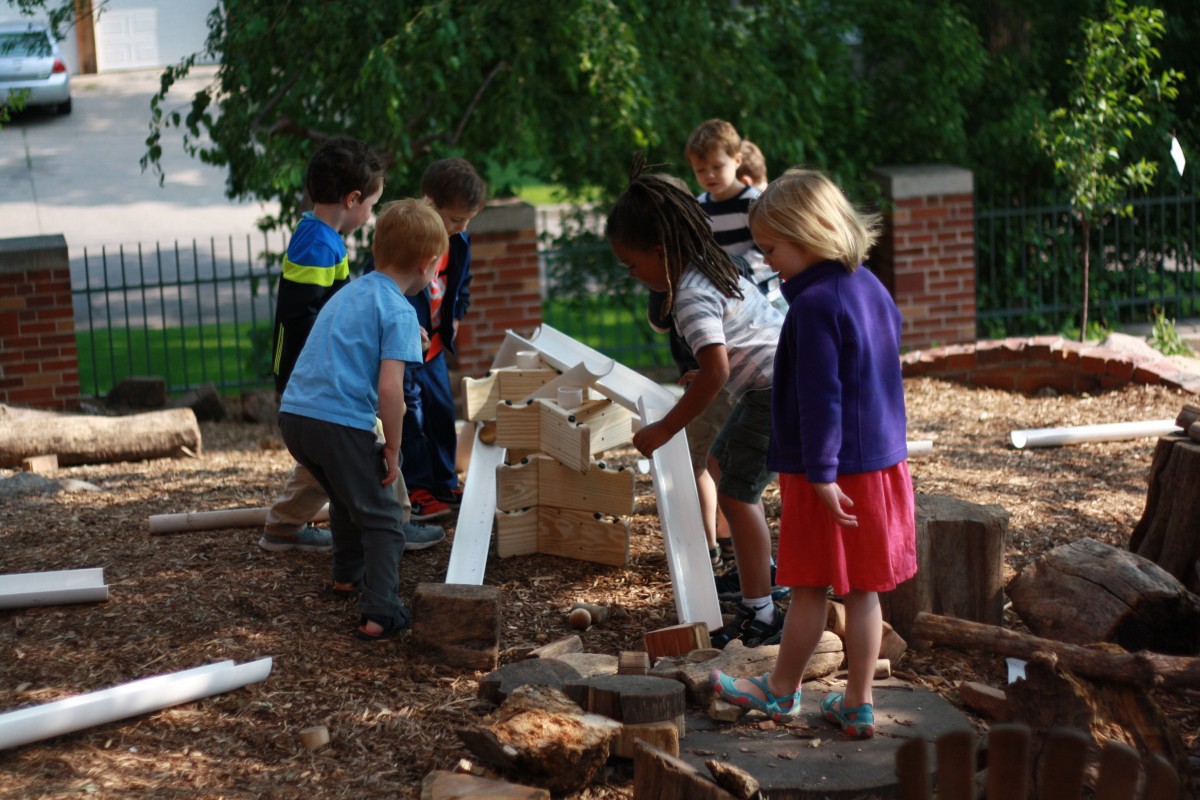The Research Keeps Rolling In: Child-Initiated Learning in Nature Yields Remarkable Benefits

This is the final post in a series of “Roots in Research” blogs, in which we summarize key findings of research conducted by Nature Explore staff and our colleagues at other institutions.
As we conclude our series on Nature Explore’s “Roots in Research,” we look at another study—this one conducted at a Nature Explore Classroom in California—that focuses on the skills children develop during child-initiated experiences outdoors. In particular, researchers were interested in the roles the environment and teachers played in supporting children’s learning. Aligning with results we’ve shared in past blog posts, the findings in this case study make a strong case for the power of learning in nature.
Children observed in this particular Nature Explore Classroom developed specific skills during self-initiated experiences. Researchers recognized the significant role of children’s initiative in making their learning relevant and meaningful for them. The specific skill areas included social/interpersonal, language/literacy, math, science, kinesthetic, and construction. Children’s interactions with materials, other children and teachers provided opportunities to learn new and master already developing skills.
Interestingly, the design of the Nature Explore Classroom environment supports child initiated learning experiences. Key design characteristics included the outdoor classroom’s overall size—15,500 square feet, which allowed children freedom to use their whole bodies. Clearly defined areas support children’s choice-making with a variety of materials. Most frequently cited areas were open area (23%), garden area (16%), and sand area (15%). Access to consistently located, abundant, open-ended, and natural materials such as sand, water and sticks enhanced children’s learning.
The teacher’s role is critical to supporting children’s skill development in a Nature Explore Classroom. Researchers believe that a teacher needs to be physically in proximity of children, offer observations, ask thought provoking questions, follow children’s lead without taking over, and trust children to make decisions. Children’s skill development was successful in part due to a teachers’ ability to know how to best support children without interfering or taking over.
For their part, teachers made informed decisions regarding when and how to engage children, what questions to ask to spur children’s thinking and when to step back and allow children to experience on their own. Teachers used open-ended questions to extend children’s thinking, allowing them to be the experts (i.e., showing what they knew) and encouraging them to articulate their thoughts. Teachers trusted children to make decisions and to act on their theories, and allowed them to use materials in unconventional ways, recognizing the learning that was possible for children as they exercised their imaginations and made visual analogies.

